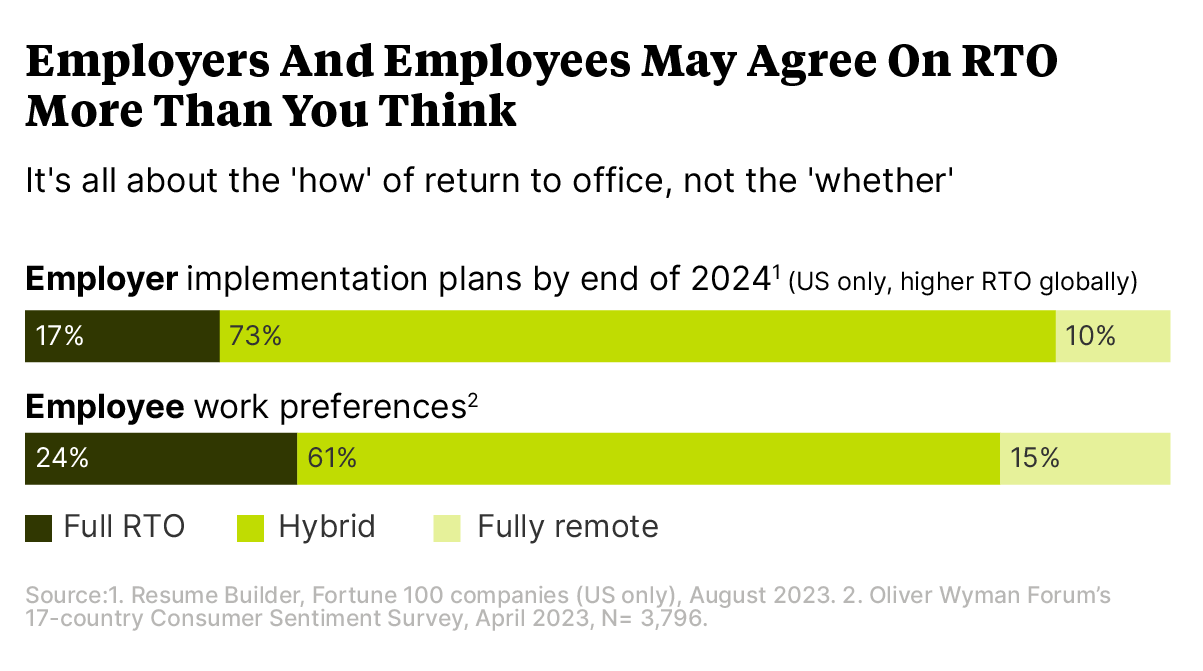For decades business leaders prioritized efficiency as the key driver of success, shifting production to low-cost countries to grow margins. The pandemic put a sudden premium on resilience, prompting companies to build redundancy into supply chains. Today, the watchword is adaptability in a world of permacrisis.
From rising geopolitical tensions to high inflation and interest rates to accelerating technological disruption and the threat of climate change, the world seems to reel from one shock to the next. These crises overlap and often reinforce each other: Think about how the war in Ukraine caused food and energy shortages that drove up global inflation, sharpened a divide between the United States and its European and Asian allies and a bloc aligned around China and Russia, and caused $59 billion in write-downs and losses at global companies that had to shrink or shutter Russian operations in the early months of the conflict. Such crises can slow growth and investment, and fuel societal discontent that feeds populism and stymies collective action.
The result: a world more volatile and uncertain than most executives have ever known. Four out of five business leaders anticipate this volatility will persist for at least two years, according to this year’s World Economic Forum’s Global Risks Perception Survey. They need to turn their companies into adaptive organizations to be ready for the next crisis before it erupts.
Define a volatility-adjusted strategy
We tend to do a poor job of anticipating the future, failing to recognize both the likelihood of many crises and the potential of many opportunities. Consider that the world’s installed photovoltaic generating capacity today is 66 times greater than what the International Energy Agency predicted two decades ago.
Leaders can get a better handle on volatility and uncertainty by bringing risk and operational teams together to model central and alternative business scenarios, identify risks (recession, say, or trade wars), and estimate their likelihood and potential impact. Then they can make adjustments to de-risk the business. Real-time analytics and artificial intelligence (AI) are critical here. AI can reduce costs by sharpening forecasting to trim inventories and by boosting working productivity, among other things. It also can accelerate time-to-market for new products like prescription drugs.
Become adaptive and flexible
Leaders also need to build agility into the fiber of their organizations to enable them to adapt quickly to crisis. This can involve placing bets on stretch opportunities that could produce tomorrow’s breakthroughs or making changes in the corporate portfolio. Consider how Google merged its two AI divisions or Microsoft boosted its investment in OpenAI to accelerate the integration of generative AI into their core search and office products. Emphasizing adaptability also can enhance a firm’s ability to make tactical shifts, such as simplifying products to get around chip shortages.
At the same time, developing a more-flexible operating model can improve a company’s performance and resilience. Outsourcing non-core activities or reducing capital spending on real estate, for example, can boost cashflow and increase efficiency. Flexibility also may include redundancy, such as dual sourcing critical components to reduce the risk of supply chain disruption.
Promote a responsive leadership mindset
To survive and thrive in today’s volatile world, leaders need to prepare their teams to handle a variety of crises and be ready to make judgment calls with imperfect information. They should establish a crisis management structure with clear roles and responsibilities. These managers need to assess the key risks and develop and test plans for handling a crisis as well as keeping major stakeholders informed. Sometimes this will mean getting comfortable with the gray areas by being explicit on the risk appetite trade-offs, as well as reinforcing connections with managers, suppliers, and clients to capture weak signals before competitors.
It’s striking that most companies did not have a crisis management team when COVID-19 hit. Even more striking is the fact that a majority still don’t have crisis playbooks at the ready – or test them. That won’t cut it in today’s permacrisis world.
Just as a diverse workforce helps business, countries benefit when their political leadership includes more women.
Nations with greater female representation at the highest levels have more laws reducing inequality, according to a new report by Women Political Leaders and the Oliver Wyman Forum.
These laws typically boost female workforce participation because women are more likely to work outside the home if they are protected from discrimination and violence. That could positively impact not only women themselves but also the economy. Closing the gender employment gap could increase global GDP by almost 20%, according to the World Bank.
Slow Progress
Countries with higher numbers of female political leaders typically score higher on the World Bank’s Women, Business, and the Law Index, which measures legal equality of economic opportunity. A perfect score of 100 means a nation has laws protecting the legal rights of all citizens.
Only 14 countries — Belgium, Canada, Denmark, France, Germany, Greece, Iceland, Ireland, Latvia, Luxembourg, Netherlands, Portugal, Spain, and Sweden — have perfect scores, according to the index.
Women now hold about 25% of parliamentary seats and 20% of ministerial positions, and 7% of heads of state are female. Only five of the 193 United Nations member nations — Mexico, New Zealand, Nicaragua, Rwanda, and the United Arab Emirates — have achieved gender equality in parliament, and women hold half or more of the ministerial positions in just 11 nations (Albania, Belgium, Chile, Colombia, Finland, Germany, Mozambique, Netherlands, Nicaragua, Norway, and Spain).
The path to increasing representation varies by country, but those with the greatest representation likely will see the most benefits.
Every month, we highlight a key piece of data drawn from more than two years' worth of consumer research.


